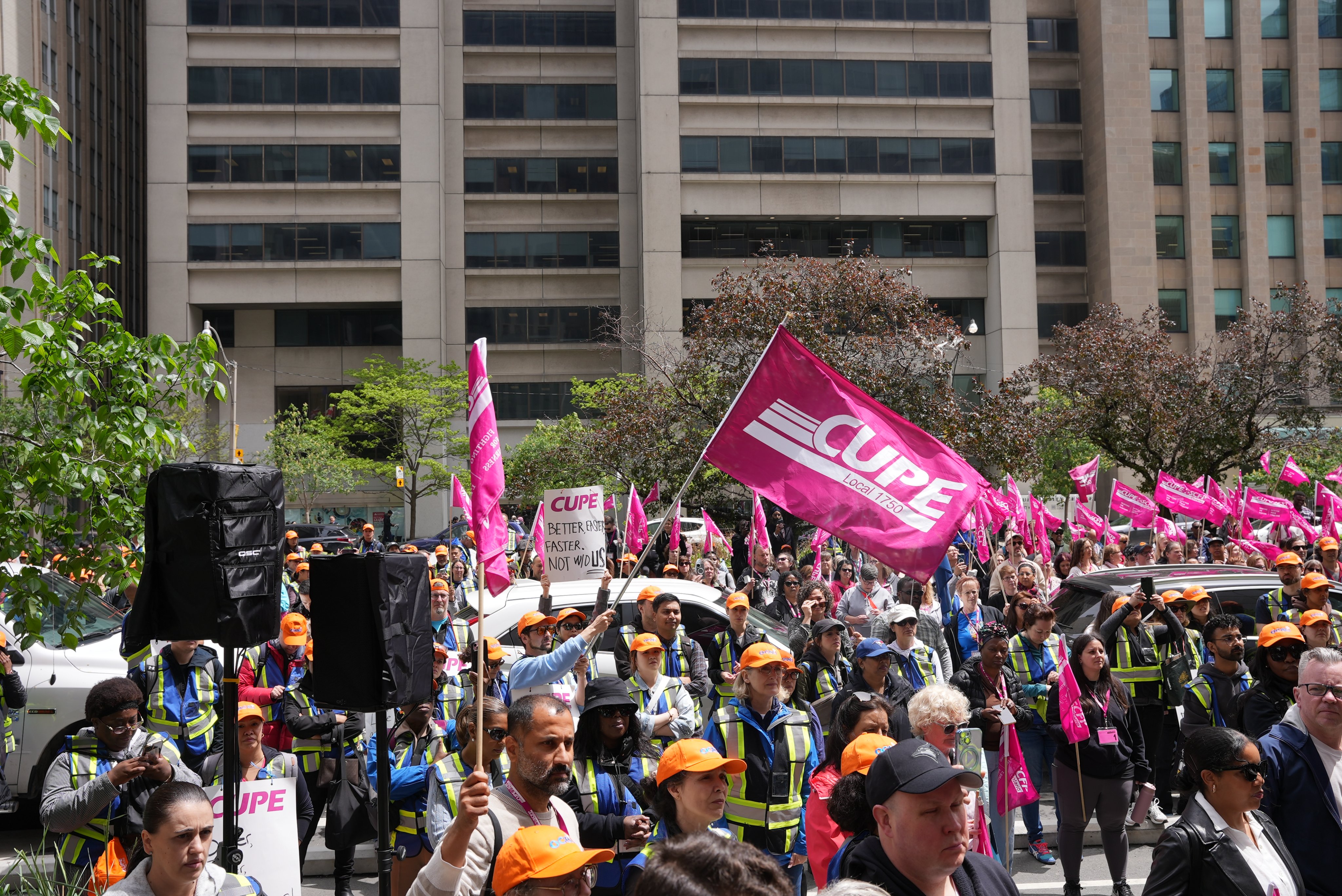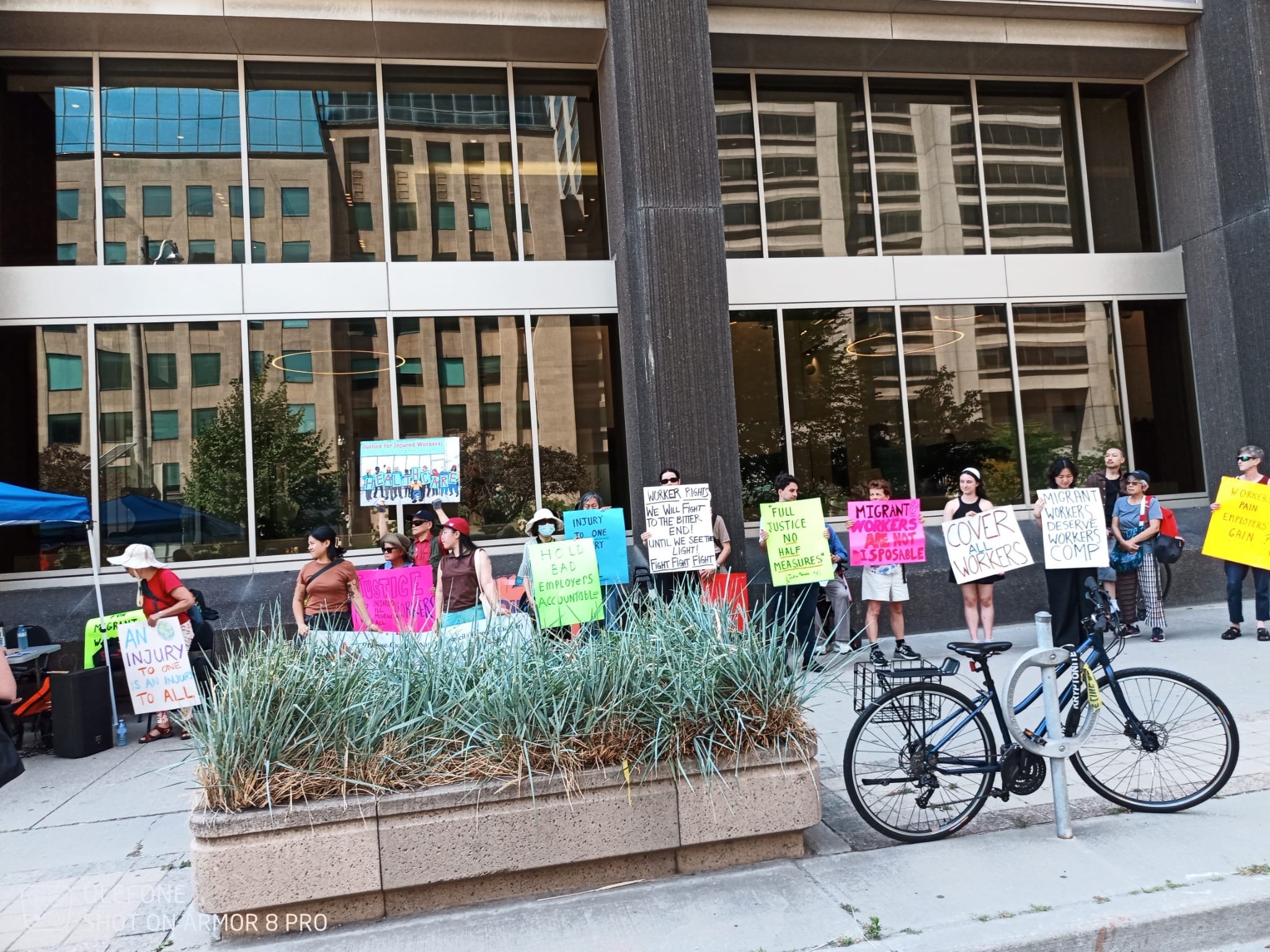Union holds press conference to highlight caseload fatigue while WSIB disputes figures

It's been two weeks since employees at the Workplace Safety and Insurance Board (WSIB) walked off the job and were subsequently locked out. Since then, both sides have been exchanging sharply conflicting claims about workload, staffing, and the handling of injured worker claims.
Speaking at a press conference today, OCEU/CUPE Local 1750 president Harry Goslin criticizes the WSIB for failing to respond meaningfully to the union’s most recent bargaining pass submitted on June 1. “The negotiations seem to have stalled,” Goslin says. “Last Sunday, we were bargaining in person. WSIB refused to meet with us to receive the union’s full counter on all outstanding matters, and we have not heard back from WSIB since Sunday night.”
Disputing claims
While the union is fighting for wage increases of at least 3 percent, Goslin says the strike—endorsed by 96 percent of the union’s members—stems from “toxic workloads” and a lack of mental health supports. He points to a peer-reviewed survey indicating that anxiety and depression levels at WSIB are nearly double the national average and warns of a risk of suicide among workers if these issues remain unaddressed. However, Aaron Lazarus, WSIB vice president of communications, says only about 30 percent of WSIB workers responded to that survey.
The union also raises alarm about the backlog of unregistered claims due to the strike. “We understand as of last week from our inside resources that there is over 20,000 backlog of injured worker claims and a backlog of registering employers for their businesses,” Goslin says.
Lazarus strongly disputes these figures. “Every claim that comes in the door to the WSIB is being registered the same day,” Lazarus says. “Since the strike started, we have registered 7,472 claims, and yesterday alone we registered 908 new claims.” Lazarus also says WSIB registered 747 new businesses and processed 62 clearance requests, typically resolved in about 16 minutes each.
Contradicting caseload concerns
Discrepancies extend to caseload concerns. At the union’s press conference, WSIB case manager Kelly Allen described the “relentless expectation to give more of myself than I ever thought I could,” adding she returned early from maternity leave to help manage caseload pressures.
“This strike isn’t just about wages,” she says. “It’s about dignity… about emotional labour that’s gone unseen for too long, and the growing weight of an unsustainable workload.”
Goslin argues some workers face caseloads that have doubled to 140. “It is insane for [WSIB] to even suggest that they can perform the work of 3,600 people out on strike,” he says.
But Lazarus says the union’s figures are exaggerated. “The person who spoke at the union’s press conference has a caseload of 23,” he says. “For long-term claims, the average caseload is 85, and for short-term claims, it’s 55.” He insists WSIB tracks these figures carefully and is working to reduce small pockets of the workforce that have higher than average caseloads.
Fighting over fairness
The union also criticized the Ford government for returning $4 billion in surplus funds to employers instead of addressing staffing and working conditions. “Doug Ford is directly responsible,” Goslin says, while calling on the province to push WSIB to negotiate a fair deal.
Lazarus says WSIB remains committed to reaching a fair and reasonable agreement. “We continue to work with the mediator on coming to a resolution, and we’re hopeful that we will get one soon,” he says. However, he adds, “every day that this strike drags on, there is going to be more and more catch-up work to do.”
As the third week of the dispute unfolds, both sides maintain they want to return to the table to find a resolution. In the meantime, Ontario’s injured workers and their employers face uncertainty as services remain under strain.





